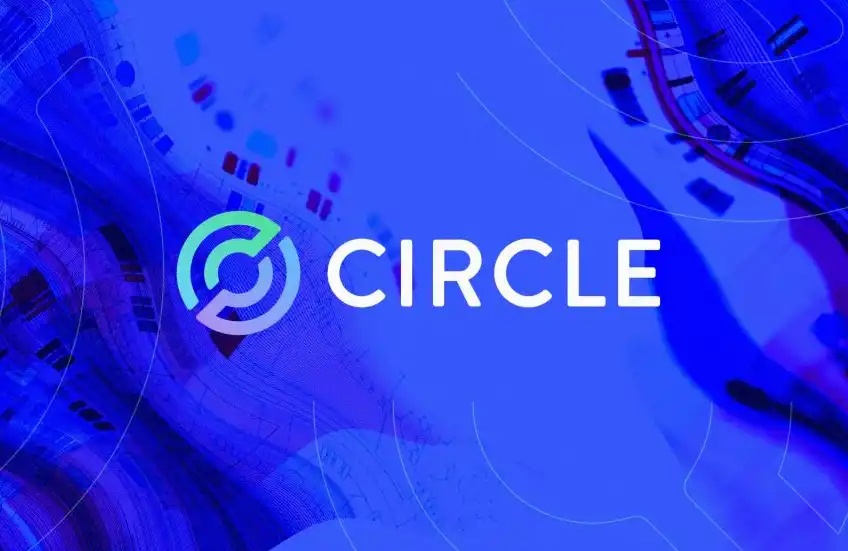Co-founder of Tornado Cash arrested, has "code is speech" become a false proposition?
Original author: Badbrothers, a cryptocurrency KOL
Translated by: Leo, BlockBeats
Today, the US Department of the Treasury's Office of Foreign Assets Control (OFAC) sanctioned Roman Semenov, one of the three founders of Tornado Cash, a virtual currency mixer, for providing material support to Tornado Cash and Lazarus Group, a state-sponsored hacking organization supported by North Korea. Since its founding in 2019, Tornado Cash has been used to launder money for criminals, including covering up the theft of hundreds of millions of dollars in virtual currency by the Lazarus Group hackers, according to the US Department of the Treasury.
But the problem is that the reason for this sanction bypasses the user's privacy layer and directly targets the protocol layer, so should protocol freedom be regulated? This behavior has once again sparked a conflict between cryptocurrency regulation and protocol technology. Cryptocurrency KOL Badbrothers commented on the incident, and BlockBeats compiled it as follows:
Code is speech.
Today, the United States has once again imposed sanctions on cryptocurrency. Tornado Cash Roman Storm and Roman Semenov, the founders, have become political prisoners of the US government for writing code. However, this sanction not only involves attacks on cryptocurrency, but also attacks on freedom of speech itself.
Let's look back to the 90s, when the Bernstein v. Department of Justice case emerged. This was one of the first major legal victories for EFF (Electronic Frontier Foundation) in establishing the principle that "code is speech" in the law.
"BlockBeats Note: In 2015, the Electronic Frontier Foundation (EFF), a non-profit organization in the United States, celebrated its 25th anniversary. The EFF website published an article reviewing a major legal victory, the "Bernstein v. United States Department of Justice" case, which was a landmark case that established that code is speech and changed the US export control regulations on encryption software. At the time, Daniel J. Bernstein, a mathematics PhD student at Berkeley, wanted to publish his developed encryption algorithm, the source code for the algorithm program, and a mathematical paper describing and explaining the algorithm. Given the US government's laws and regulations at the time, Bernstein had to submit his ideas, register as an arms dealer, and then apply for an export license."
However, the US State Department warned him that even if he applied for a license, he would be officially rejected because his encryption technology was too secure. Subsequently, the EFF formed a lean legal team and sued the US government on behalf of Bernstein in February 1995. On April 15, 1996, Judge Marilyn Hall Patel in Northern California issued the crucial first ruling, recognizing that code is speech and therefore protected by the First Amendment."
The case roughly describes the restrictions and regulations imposed by the United States on encryption software. In the early 1990s, the US government classified encryption software as a "munition" for national security purposes and imposed strict restrictions and regulations on it. Bernstein fought for and won the legality of "code is speech" and prevented the US from restricting the export of encryption software, which also promoted the struggle for the flourishing development of e-commerce.
Since the birth of encryption technology, the US government has been cracking down on it, from attempting to install backdoor chips on every electronic device to recent attempts to force companies like Apple to install software backdoors for "national security" reasons.
"But what if we encounter viruses or something like that?"
Let's review what is not covered by freedom of speech. Frequently repeated lies, such as "you can't shout fire in a crowded theater," come from the 1919 Schenk v. United States case, which was a very poor ruling against bad speech laws at the time.
Of course, this case has nothing to do with fires or crowded theaters. Instead, it was used under the recently passed anti-spying law to imprison anti-war protesters who distributed pamphlets against conscription (slavery) during World War I. Woodrow Wilson (the 28th President of the United States) was the worst.
This vulnerability was ultimately overturned by the Brandenburg v. Ohio case, which established the current situation in the United States, namely that "speech advocating illegal conduct is protected by the First Amendment, unless the speech is likely to incite imminent lawless action."
Applying this logic to code would mean creating viruses/malware with the intention of infecting user systems and causing harm, which is illegal. However, simply creating one as a test/experiment within a closed network is not allowed.
Another recent case worth noting is the legal battle between Cody Wilson, a US-based anarchist in the encryption industry, and the US State Department over the legality of 3D printed gun codes. They attempted to sue the code under the International Traffic in Arms Regulations (ITAR).
3D printing's contribution to the right to self-defense is like the contribution of the internet to freedom of speech, and like the contribution of Bitcoin to freedom of transactions. In my opinion, Cody and Satoshi Nakamoto will be immortalized as heroes defending freedom.
Cody is a crypto anarchist and a loyal supporter of Bitcoin. In 2013, he released the files for the first 3D printed gun, "The Liberator". The United States claimed that this act of publishing 3D printed gun code was equivalent to exporting weapons to Mexico.
ITAR regulations were also used to investigate PGP founder Phil Zimmermann, but ITAR eventually abandoned the investigation due to the Bernstein case. However, Cody's case with the US State Department regarding the printing of firearms finally came to a close in 2018, with the case settling out of court. The US Department of Justice ruled that as of August 1, 2018, owning or publishing 3D printed firearm designs in the US would be considered legal. Defense Distributed (the organization created by Cody) also received a $40,000 legal settlement from the US government.

Looking back at Tornado Cash. We have established the long-term rationality of "code is speech". Tornado Cash's statement indicates that the project has no direct connection with the hacker organization that uses it, but is only being utilized by them.
The argument of this case boils down to "Tornado Cash intentionally assists criminals in money laundering by not implementing KYC or AML procedures", which means a direct attack on cryptocurrency and freedom of speech. The officials stated that "creating privacy protocols for criminals to use is a criminal act".
Tornado Cash is not a CEX. Tornado Cash is a privacy solution based on Ethereum zero-knowledge proofs: a smart contract that accepts Ethereum transactions so that assets can be withdrawn in the future without referencing the original transaction.
This case also means that the struggle between "privacy, freedom of speech, cryptocurrency, and our basic natural rights" and "regulation" has once again escalated. Now, the founder of Tornado Cash has also been included in the list of numerous other political criminals in the United States, like Ross Ulbricht (founder of the dark web Silk Road) and Julian Assange (founder of WikiLeaks).
Now we have to stand up and express our support for these founders, which is also the meaning of Bitcoin and blockchain from the beginning to the present.
Finally, if Roman is convicted because of these absurd legal standards, I believe the United States may also prosecute Satoshi Nakamoto for similar reasons and logic, including anyone who has contributed to Monero or anyone who attempts to place a privacy layer above Bitcoin. They will all face the same risks.
Welcome to join the official BlockBeats community:
Telegram Subscription Group: https://t.me/theblockbeats
Telegram Discussion Group: https://t.me/BlockBeats_App
Official Twitter Account: https://twitter.com/BlockBeatsAsia
 Forum
Forum OPRR
OPRR Finance
Finance
 Specials
Specials
 On-chain Eco
On-chain Eco
 Entry
Entry
 Podcasts
Podcasts
 Data
Data


 Summarized by AI
Summarized by AI







